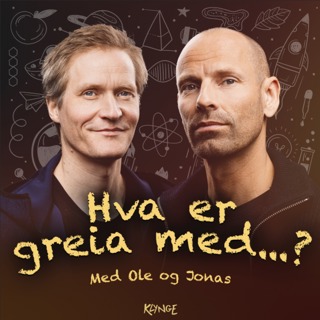
McKenzie Wark, “Molecular Red: Theory for the Anthropocene” (Verso, 2015)
McKenzie Wark’s new book begins and ends with a playful call: “Workings of the world untie! You have a win to world!” Molecular Red: Theory for the Anthropocene (Verso, 2015) creates a conversation be...
10 Okt 20161h 2min

Stevphen Shukaitis, “The Composition of Movements to Come: Aesthetics and Cultural Labor after the Avant-Garde” (Rowman and Littlefield, 2016)
How is the notion of the avant-garde in art relevant today? What can contemporary social movements learn from the Situationists? What is the meaning of artistic value to forms of resistance? These, an...
5 Okt 201639min

Stuart Elden “Foucault’s Last Decade” (Polity Press, 2016)
Why did Michel Foucault radically recast the project of The History of Sexuality? How did he work collaboratively? What was the influence of Antiquity on his thought? In Foucault’s Last Decade (Polity...
21 Sep 201649min

Mary Hawkesworth, “Embodied Power: Demystifying Disembodied Politics” (Routledge, 2016)
How can we explain the “occlusion of embodied power” and “lack of attention to race, gender, and sexuality” in the discipline of political science, a field “that claims power as a central analytical c...
16 Sep 20161h 3min

Darian M. Parker, “Sartre and New Child Left Behind: An Existential Psychoanalytic Anthropology of Urban Schooling” (Lexington, 2015)
Darian M. Parker joins the New Books Network to discuss his recently published book, Sartre and No Child Left Behind: An Existential Psychoanalytic Anthropology of Urban Schooling (Lexington Books, 20...
12 Sep 201636min

Matt Dawson “Social Theory for Alternative Societies” (Palgrave, 2016)
What can social theory offer to visions of an alternative society? In his new book, Social Theory for Alternative Societies (Palgrave, 2016), Dr Matt Dawson, a Lecturer in Sociology at the University ...
9 Sep 201641min

Ibram X. Kendi, “Stamped from the Beginning: The Definitive History of Racist Ideas in America” (Nation Books, 2016)
Ibram X. Kendi is an assistant professor of African American history at the University of Florida. Stamped from the Beginning: The Definitive History of Racist Ideas in America (Nation Books, 2016) of...
8 Sep 201657min

John A. Gronbeck-Tedesco, “Cuba, the United States, and the Cultures of the Transnational Left, 1930-1975” (Cambridge UP, 2015)
John A. Gronbeck-Tedesco’s new book, Cuba, the United States, and the Cultures of the Transnational Left, 1930-1975 (Cambridge University Press, 2015), reaches across the Atlantic ocean and connects j...
29 Aug 201650min




















